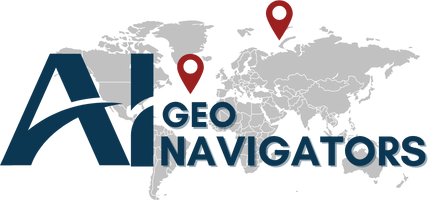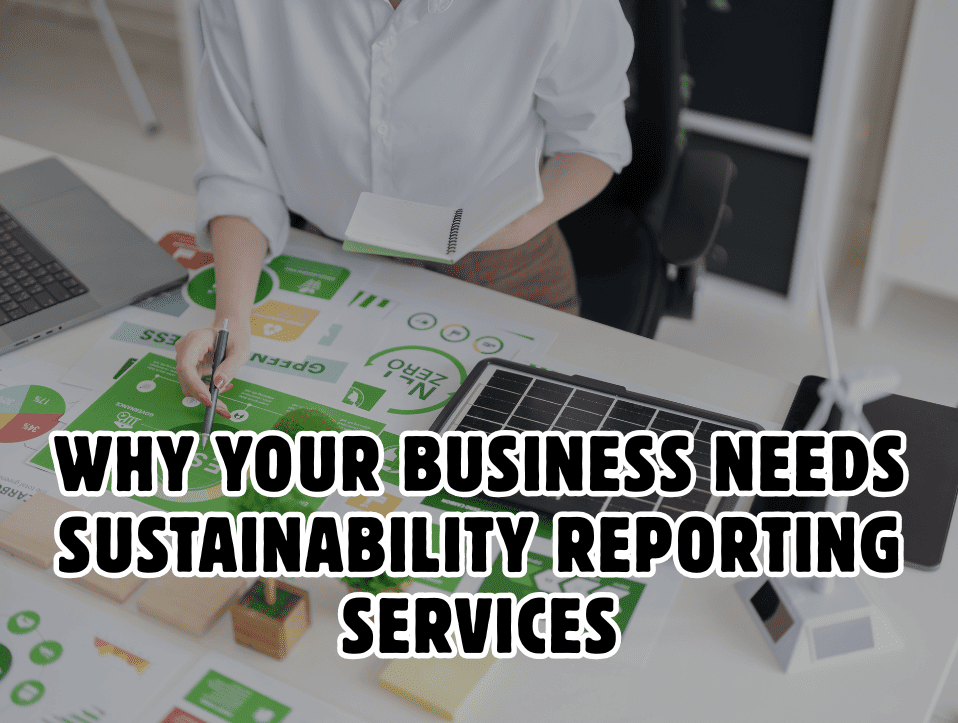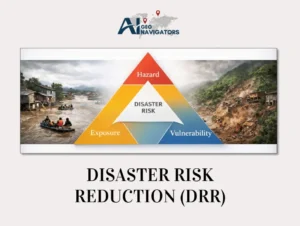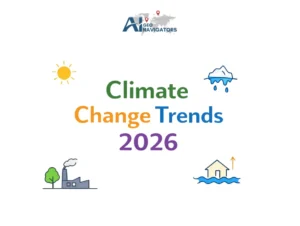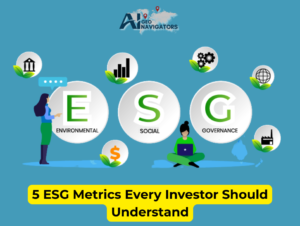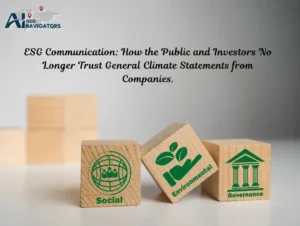In today’s rapidly evolving business landscape, sustainability is no longer an optional add-on for organizations, it has become a fundamental pillar of long-term success and resilience. Companies are increasingly being evaluated not only for their financial performance but also for their environmental, social, and governance (ESG) impact.
Investors, regulators, customers, and employees alike are demanding transparency and accountability from businesses. One of the most effective ways to demonstrate this commitment is through sustainability reporting services.
This blog explores in depth what sustainability reporting entails, its benefits, the major frameworks guiding it, the process businesses follow, and why partnering with expert service providers can make all the difference.
Table of Contents
ToggleWhat Is Sustainability Reporting?
Sustainability reporting is the practice of disclosing an organization’s environmental, social, and governance (ESG) performance in a structured and transparent way. Unlike traditional financial reporting, which focuses on profits and losses, sustainability reporting captures the broader impact a business has on people, the planet, and long-term prosperity.
It typically includes details such as:
- Environmental performance: energy consumption, carbon emissions, waste management, water usage, biodiversity impact.
- Social performance: employee well-being, diversity and inclusion, community engagement, human rights compliance.
- Governance performance: corporate ethics, board composition, risk management, anti-corruption practices.
Sustainability reporting helps organizations:
- Track their ESG initiatives over time.
- Benchmark against industry standards.
- Communicate progress to stakeholders in a credible manner.
In essence, sustainability reporting goes beyond compliance; it creates a framework for businesses to demonstrate their commitment to building a better and more resilient future.
Benefits of Sustainability Reporting Services
For many businesses, sustainability reporting may seem daunting. It requires specialized expertise, robust data collection, and alignment with international frameworks. This is where sustainability reporting services play a crucial role. They provide professional guidance, tools, and insights to make the reporting process seamless and impactful.
Here are the key benefits of adopting sustainability reporting services:
1. Enhanced Transparency and Trust
Transparency builds trust. By disclosing ESG performance, businesses foster credibility with investors, customers, and regulators. Professional reporting services ensure that information is presented accurately, consistently, and in compliance with global standards—helping to avoid greenwashing accusations.
2. Improved Risk Management
Sustainability reports highlight potential risks related to climate change, regulatory compliance, supply chain vulnerabilities, and reputational damage. With expert reporting services, companies can identify and address risks proactively, thereby protecting long-term value.
3. Competitive Advantage
Consumers increasingly prefer sustainable brands. Investors are channeling funds into companies with strong ESG credentials. By leveraging sustainability reporting services, businesses differentiate themselves in competitive markets and attract capital, customers, and talent.
4. Operational Efficiency
Reporting services often uncover inefficiencies in energy use, waste generation, or supply chain processes. Addressing these issues not only improves sustainability performance but also reduces costs, thereby delivering both environmental and economic benefits.
5. Regulatory Compliance
Many jurisdictions are mandating ESG disclosures. For instance, the European Union has introduced the Corporate Sustainability Reporting Directive (CSRD). Reporting services help businesses navigate complex regulatory environments, ensuring compliance while minimizing risks of penalties.
6. Stronger Stakeholder Engagement
Employees, investors, and communities expect businesses to contribute positively to society. Sustainability reporting provides a structured way to engage these stakeholders by showcasing measurable progress and commitments.
Key Sustainability Reporting Frameworks
Sustainability reporting is guided by several internationally recognized frameworks and standards. These frameworks ensure consistency, comparability, and credibility of disclosed information. Businesses often rely on sustainability reporting services to select and align with the most appropriate framework for their industry and region.
1. Global Reporting Initiative (GRI)
The GRI Standards are the most widely used sustainability reporting framework worldwide. They provide comprehensive guidelines for disclosing impacts on the economy, environment, and people. GRI is particularly focused on stakeholder inclusiveness and materiality.
2. Sustainability Accounting Standards Board (SASB)
SASB focuses on industry-specific standards, helping organizations disclose financially material sustainability information relevant to investors. It is widely used in the United States and by companies aiming to attract capital markets attention.
3. Task Force on Climate-related Financial Disclosures (TCFD)
TCFD emphasizes climate-related risks and opportunities, recommending disclosures around governance, strategy, risk management, and metrics. It is particularly relevant for organizations facing climate risks or with carbon-intensive operations.
4. Carbon Disclosure Project (CDP)
CDP provides a platform for disclosing environmental data, particularly around greenhouse gas emissions, water security, and deforestation. Many investors and supply chain partners rely on CDP disclosures when making decisions.
5. Integrated Reporting Framework ()
This framework emphasizes the integration of financial and non-financial information, showing how sustainability factors contribute to long-term value creation. It is widely adopted by companies looking to demonstrate holistic reporting.
6. IFRS Sustainability Disclosure Standards (ISSB)
Introduced by the International Sustainability Standards Board, ISSB standards are designed to create a global baseline for sustainability-related financial disclosures, ensuring cross-border comparability.
By aligning with these frameworks, companies can enhance the quality and credibility of their sustainability reporting, while also meeting stakeholder expectations.
How the Sustainability Reporting Process Works
The sustainability reporting process is more than compiling data; it is a systematic approach to measuring, managing, and communicating ESG performance. Expert sustainability reporting services typically follow a structured methodology:
Step 1: Materiality Assessment
Identify the most significant sustainability issues affecting the business and its stakeholders. This involves engaging stakeholders, benchmarking against peers, and assessing risks.
Step 2: Data Collection and Validation
Gather accurate data across environmental, social, and governance dimensions. Reporting services help establish systems for consistent and reliable data collection, ensuring alignment with chosen frameworks.
Step 3: Framework Selection
Determine the most appropriate sustainability reporting framework(s) based on industry, geography, and stakeholder expectations. Professional advisors ensure alignment with global best practices.
Step 4: Report Drafting
Develop a clear, transparent, and engaging sustainability report. This includes data visualization, performance analysis, case studies, and narratives that resonate with diverse audiences.
Step 5: Assurance and Verification
Independent assurance of sustainability reports enhances credibility. Service providers coordinate external assurance processes to validate data accuracy and compliance.
Step 6: Publication and Communication
Publish the sustainability report across digital platforms, websites, and regulatory channels. Effective communication strategies help maximize the report’s visibility and impact.
Step 7: Continuous Improvement
Sustainability reporting is not a one-time activity; it is an ongoing process. Businesses should review feedback, identify gaps, and continuously enhance their sustainability strategies year after year.
Common Myths About Sustainability Reporting
Despite its growing importance, several myths and misconceptions continue to surround sustainability reporting. Let’s debunk some of the most common ones:
Myth 1: Sustainability Reporting Is Only for Large Corporations
While multinational corporations pioneered sustainability reporting, it is equally relevant for small and medium-sized enterprises (SMEs). With increasing pressure from supply chains and regulators, SMEs also benefit from transparent ESG disclosures.
Myth 2: It’s Just About Environmental Issues
Sustainability reporting goes beyond carbon footprints. It covers social and governance factors, such as labor practices, diversity, ethics, and community engagement, all of which shape long-term business resilience.
Myth 3: Reporting Is Too Expensive
While sustainability reporting requires investment, the long-term benefits—such as risk reduction, efficiency gains, and investor attraction—outweigh the costs. Moreover, expert services streamline processes, making them more cost-effective.
Myth 4: Stakeholders Don’t Care About Sustainability Reports
On the contrary, investors, regulators, employees, and customers increasingly rely on sustainability reports for decision-making. Ignoring ESG disclosures can result in reputational risks and missed opportunities.
Myth 5: Reporting Equals Sustainability
Reporting alone does not make a business sustainable. It is the actions, strategies, and improvements behind the reporting that truly drive sustainability. Reports are a reflection, not the solution in themselves.
Get Expert Help with Your Sustainability Reporting
Navigating the complexities of sustainability reporting can be overwhelming without professional guidance. Partnering with Ai Geo Navigators sustainability reporting service providers offers significant advantages:
- Specialized Expertise: Professionals are well-versed in international standards and emerging regulations.
- Time and Resource Efficiency: Outsourcing reporting allows businesses to focus on core operations while ensuring accuracy.
- Credibility: Expertly prepared reports reduce the risk of greenwashing accusations and enhance stakeholder trust.
- Tailored Solutions: Service providers customize reporting strategies to align with industry needs and organizational goals.
Ultimately, expert support ensures that sustainability reporting is not just a compliance exercise but a strategic tool for driving growth, resilience, and reputation.
FAQs
What is the main purpose of sustainability reporting?
The purpose is to disclose an organization’s environmental, social, and governance performance, fostering transparency, accountability, and stakeholder trust.
Which companies are required to publish sustainability reports?
While requirements vary by jurisdiction, many large corporations are legally mandated to report ESG data. However, SMEs are increasingly encouraged to disclose sustainability performance to meet stakeholder expectations.
How often should a sustainability report be published?
Most organizations publish annually, aligning with financial reporting cycles. Some provide interim updates to stakeholders.
Are sustainability reports audited?
Yes, many companies opt for external assurance to validate the accuracy and credibility of their sustainability data.
How long does it take to prepare a sustainability report?
Depending on organizational size and complexity, it may take several weeks to a few months. Partnering with reporting experts significantly streamlines the process.
Do sustainability reports help in investor relations?
Absolutely. Investors increasingly prioritize ESG performance. Comprehensive reports provide them with the insights needed to make informed decisions.
Conclusion
Sustainability reporting has evolved from being a voluntary practice to a strategic necessity. In a world where businesses are judged not just by profits but also by their impact on society and the planet, transparent ESG disclosures foster resilience, trust, and competitive advantage.
By leveraging professional sustainability reporting services, organizations can ensure compliance with international frameworks, engage stakeholders effectively, and uncover opportunities for innovation and efficiency. Far from being a burden, sustainability reporting is an investment in a business’s long-term success and contribution to a sustainable future.
